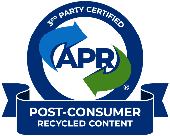P&G breakthrough leads to $120M investment in Ohio plant
PureCycle Technologies today revealed plans to open a small-scale plant in Lawrence County, Ohio, to test and calibrate a polypropylene plastic recycling process based on...
Jul. 20, 2017 - Barrett Brunsman - Cincinnati Business Courier
PureCycle Technologies today revealed plans to open a small-scale plant in Lawrence County, Ohio, to test and calibrate a polypropylene plastic recycling process based on patented technology developed by Procter & Gamble Co.
Total investment reportedly will be $120 million, with the goal of producing 80 million pounds of polypropylene plastic a year. P&G and PureCycle officials hosted a ribbon cutting July 20 at the leased 101,000-square-foot plant, which occupies the site of a former Dow Chemical facility west of Ironton.
The small-scale plant will begin operating in January 2018, and a full-scale plant will open in 2020. PureCycle reportedly plans to employ 15 people initially and up to 60 people full time at the site in the Haverhill area, which is 123 miles east of Cincinnati. The jobs will pay about $50,000 a year.
The plant will restore used polypropylene plastic to virgin-like quality with a recycling method that is one of a kind, according to the Cincinnati-based maker of Tide detergent (NYSE: PG) and PureCycle Technologies.
Ultimately, the plant will enable consumers to purchase more products made from recycled plastic.
“Our approach to innovation not only includes products and packaging, but technologies that allow us and others to have a positive impact on our environment,” said Kathy Fish, P&G’s chief technology officer.
“This technology, which can remove virtually all contaminants and colors from used plastic, has the capacity to revolutionize the plastics recycling industry by enabling P&G and companies around the world to tap into sources of recycled plastics that deliver nearly identical performance and properties as virgin materials in a broad range of applications,” Fish said.
P&G reportedly uses about 550,000 tons of virgin polypropylene plastic annually.
While P&G developed the technology, the recycled polypropylene plastic will be widely available for purchase across industries. Polypropylene plastic is used in consumer goods packaging, food and beverage packaging, automobile interiors, electronics, construction materials, home furnishings and other products.
In the United States alone, the demand for virgin-quality recycled polypropylene plastic is immense, said Steve Alexander, CEO of the Association of Plastics Recyclers. The group has identified 1 billion pounds of recycled polypropylene plastic demand in North American alone, and 720 million pounds of that demand is for high-quality recycled polypropylene plastic.
At present, PureCycle has the only technology able to meet that demand, the Chicago-based company said. The polypropylene plastic global market reportedly is valued at more than $80 billion, and is on track to reach $133.3 billion by 2023.
“This is a case where a hundred-billion-dollar industry required new technology to meet a compelling, unmet need,” said Mike Otworth, CEO of PureCycle Technologies. “Both manufacturers and consumers have signaled a strong preference for recycling plastics, which otherwise pollute oceans, landfills, and other natural places. Until now, recycled (polypropylene plastic ) had limited applications. We’re single-handedly removing those limitations and giving companies the choice to use more sustainable, recycled resins.”
PureCycle Technologies, which was launched in the fourth quarter of 2015 based on P&G research and development, claims to offer the first virgin-like polypropylene resin at prices comparable to virgin polypropylene.
P&G said the technology demonstrates its commitment to sustainability and helps the company achieve its 2020 recycling goals, which include doubling the use of recycled resin in plastic packaging and ensuring 90 percent of product packaging is either recyclable or programs are in place to create the ability to recycle it.
P&G licensed the technology to PureCycle, a portfolio company of Innventure, a Wasson Enterprise Partnership that commercializes disruptive technologies.
I reported in April that P&G had partnered with Innventure, a group of experts in launching new businesses. Innventure evaluates P&G technology to determine what sort of company could be created. Each startup’s management team will be selected by Innventure, which will help scale the business and have a stake in it.
P&G’s objective is to generate maximum value from its R&D as well as its intellectual property.






-1.png)
